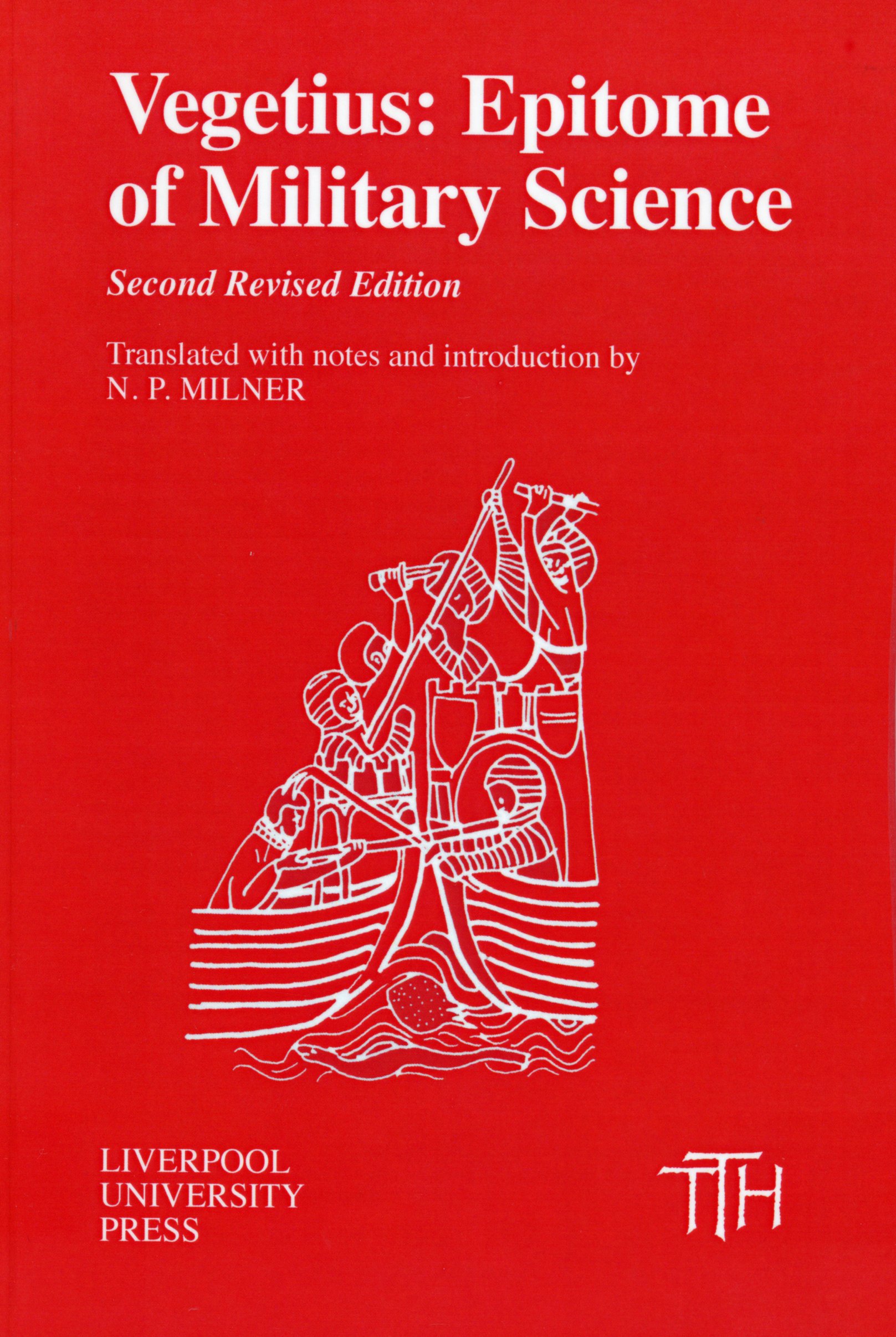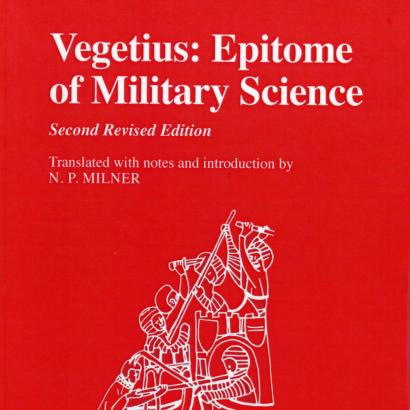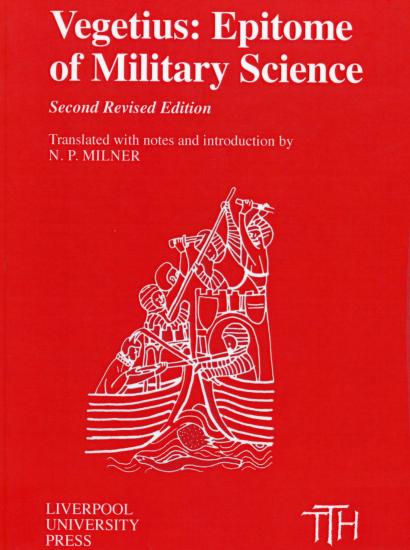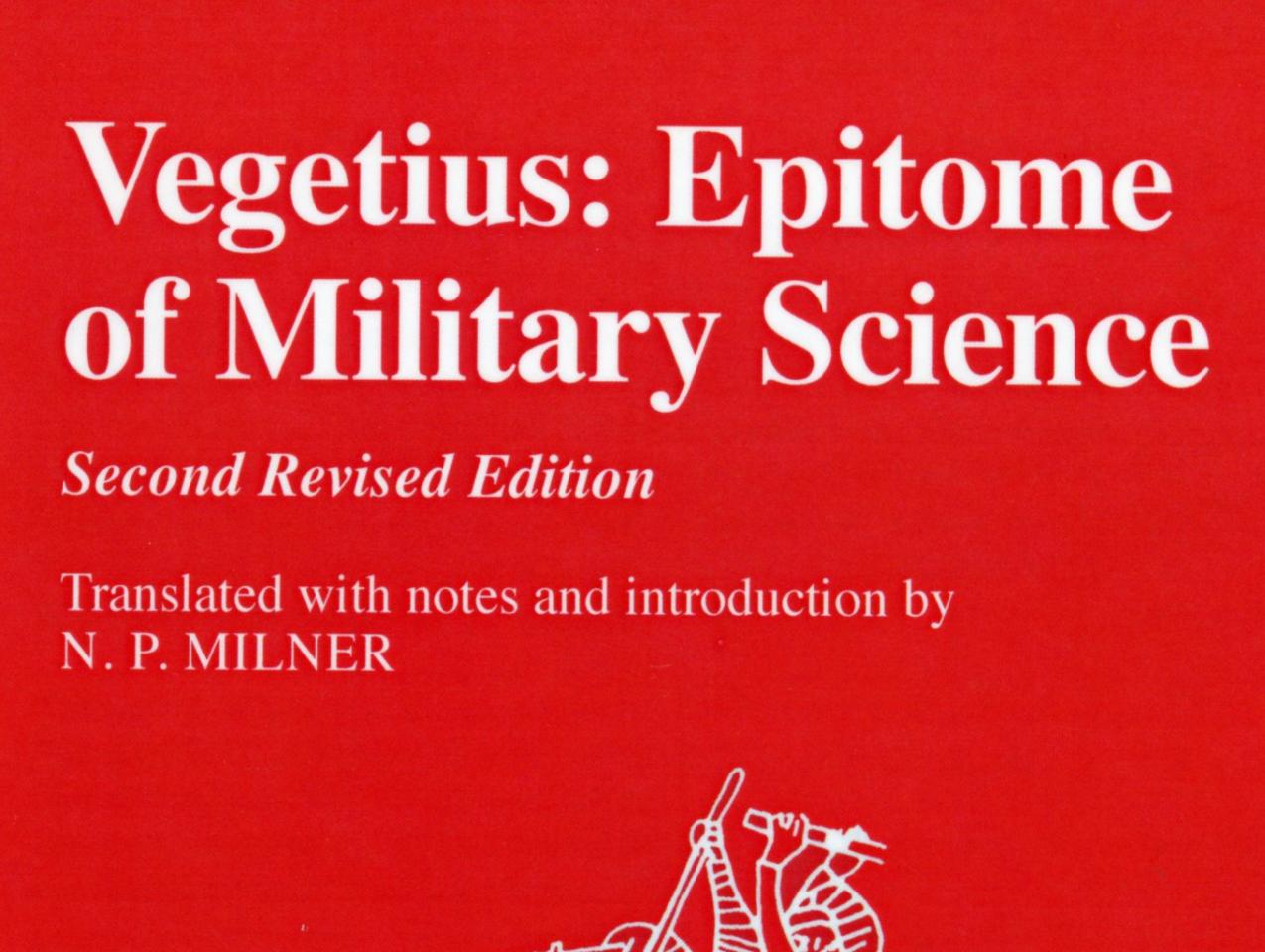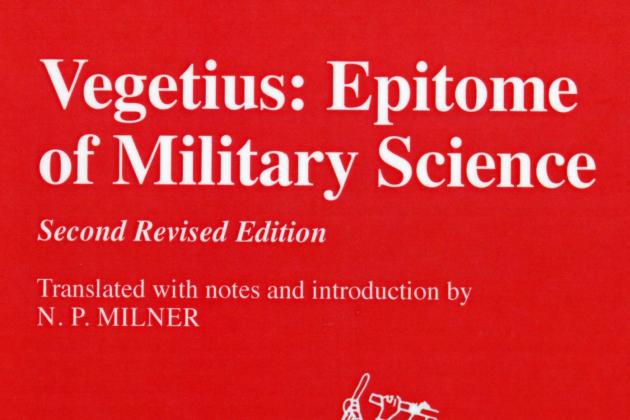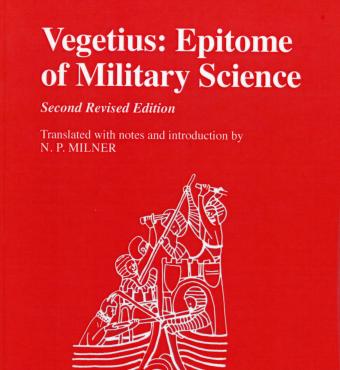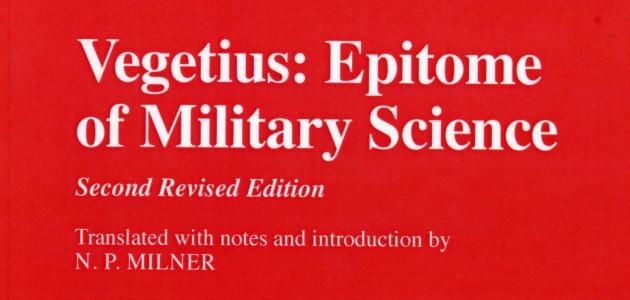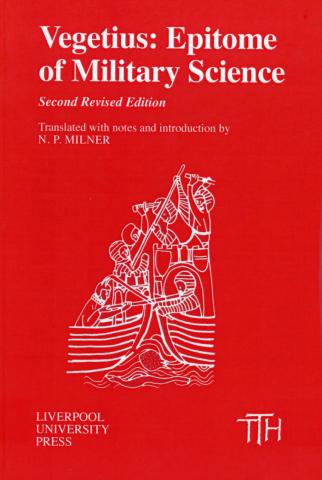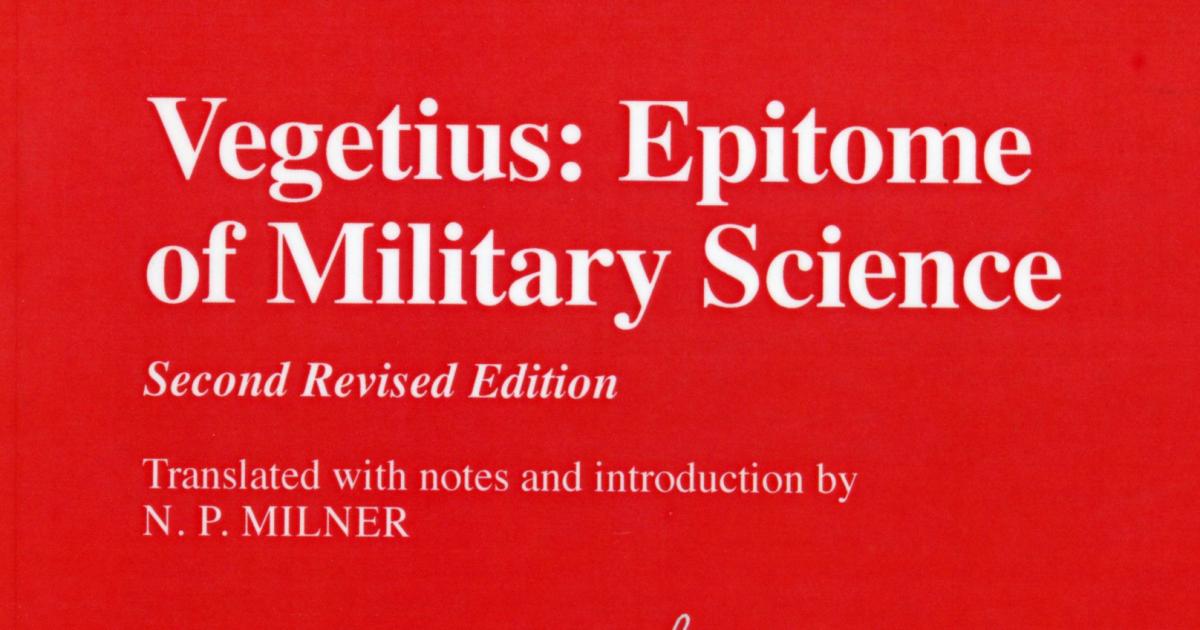- Military
- Revitalizing History
“Si vis pacem, para bellum” (“he who desires peace, let him prepare for war”) declares Vegetius. It is an apt adage for understanding the worldview of the Roman administrator Publius Flavius Vegetius Renatus, the author of the Epitoma rei militaris (Epitome of Military Science), or the work’s informal yet more popular title, De re militari. Do not let the translation deceive you. Vegetius does not conclude that war is a science. While science remains crucial to victory, in the end, war is an art, and like any art, we cannot master it, but only forever refine the craft. The book’s epitome is, in the author’s words, that “There is but one premiss to this work: let none despair of the possibility of doing that which was done in the past.” Therefore, preparedness requires wisdom, and wisdom’s font is history.
We have limited knowledge of Vegetius’s background or the Epitome’s precise date. He wrote in Latin, was a Christian from Spain, and the name, Flavius, denotes he was a public servant, but of higher status within Rome’s imperial court. His objective was to furnish a military handbook for the Roman emperor—although never named or dated, most likely Vegetius wrote for Theodosius I the Great (r. AD 379–395) during the late 380s. The Epitome is not a field manual. Nonetheless, Vegetius’s strategic level guidance trickles down into operational and tactical level acumen on the Roman way of war. Yet, he never claims to break new ground and stresses he is a compiler, which makes him akin to a military analyst supplying a strategic level assessment to the president on national security. And this is strategic level assessment at its finest. His goal is to instruct, not entertain or appease; moreover, like all venerable strategists, Vegetius transcends military matters because his advice applies to anyone, anywhere—Catholic medieval monks adored the text for its conclusion that life requires rigor and vigor. The Epitome is a philosophy of war.
Man’s state of mind is a vital component for Vegetius. War is a symptom of mankind’s fallen nature, hence the requirement on preparedness by looking back for instruction to face both victory and defeat. The commander and country that prepares, studies, and trains ad infinitum possesses the advantage over inevitable future wars and enemies because, as Vegetius asserts, “The habit of daily labour in peace may not then seem arduous in war.” Tradition maintains stability. But Vegetius is more. A country tempers tradition with adaptability, flexibility, and balancing risk with caution…a delicate game that, again, requires training, discipline, authority, and wisdom—essential terms within the Vegetian vocabulary. The ruler and his people hone these habits before war, not during it. The latter spells disaster. This continuous mental and physical preparation guides the state. Vegetius reports, “In an emergency sudden things are terrifying, things that are foreseen do not usually strike panic. The ancients took very thorough precautions against disturbance to the fighting troops,” and later adds, “for familiar things are not frightening.” Exposure and experience combine to enable facing forthcoming conflict.
Vegetius foresaw the future because he knew all empires fall first from within before falling from without. Rome’s crushing defeat at the battle of Adrianople in AD 378 placed the empire into a grand strategic rearguard action. After Adrianople the empire took reactive military footing rather than the proactive élan that turned the Mediterranean into a Roman lake. In the fifth century’s multifront wars against enemies like the voracious Vandals or courageous commanders such as Alaric, Western Rome collapsed less than a century after Vegetius provided his Epitome. He understood the crisis: Rome had stopped being Roman. Vegetius warns that it is with profound hubris we assume our contemporary age understands life better or that the past is a realm of inferiority. The Vegetian assessment held for centuries.
During the Renaissance, however, the West began despairing of the past. Voices such as Francesco Petrarch and Giorgio Vasari, endorsed cherry picking history, labeling the Middle Ages as backward; the Reformation and Enlightenment added further blows to tradition, authority, and wisdom. A slow but forward-leaning shift occurred in the Western worldview. Vegetius’s voice became a dim echo…his vocabulary dirty. Reverence for and seeking counsel from history became doltish, antiquarian at best. But reflect upon this detail: America’s first general and first president, George Washington, kept an annotated copy of Vegetius at hand…he was one of the last. In the Age of the Machine, preparedness based upon history, tradition, and discipline, have no place. Nor does Vegetius. We are poorer for it.
Reader's Guide
- Publius Flavius Vegetius Renatus, Vegetius: Epitome of Military Science, 2nd ed., ed. and trans. N. P. Milner (Liverpool: Liverpool University Press, 2011). Milner supplies the authoritative translation, both accessible and erudite, which includes a comprehensive table of contents providing Vegetius’s traditional preparedness-centered thesis in an instant; Milner augments the book with a helpful introduction and ample footnotes.
- Christopher Allmand, The De Re Militari of Vegetius: The Reception, Transmission and Legacy of a Roman Text in the Middle Ages (Cambridge: Cambridge University Press, 2011). A master medieval military historian delivers an exhaustive companion for readers seeking to understand Vegetius’s legacy until his influence ebbed after AD 1500.







